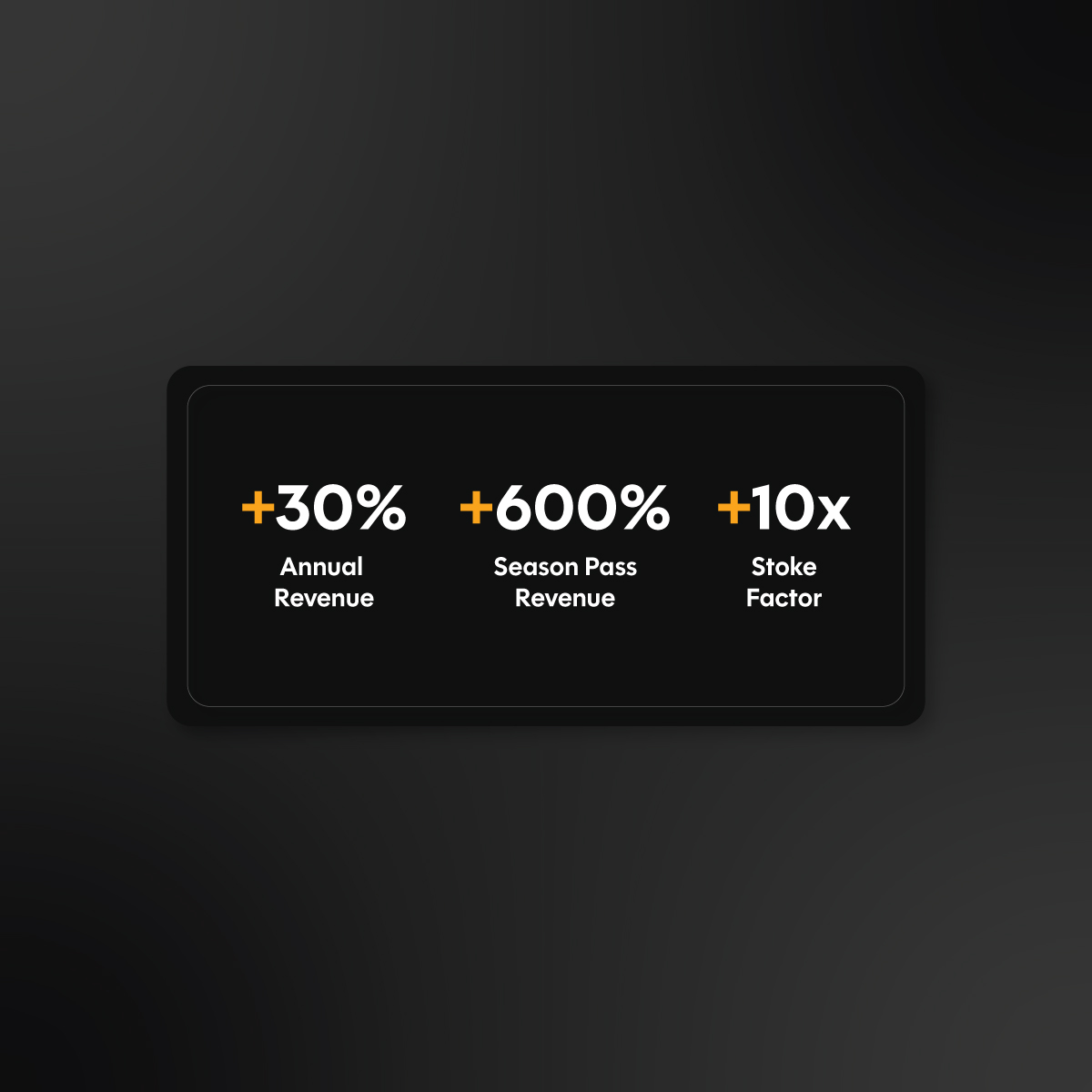Social media marketing for your restaurant is probably a hot mess—and it’s costing you customers every single day.
Here’s the brutal truth: most restaurants are on social media but they’re doing it completely wrong.
This isn’t about becoming the next Instagram sensation. It’s about building a systematic approach that transforms your social media from a time-consuming chore into a customer acquisition machine that works 24/7.
Why Most Restaurant Social Media Fails (And How You’ll Be Different)
Let’s get real about what’s actually happening with restaurant social media:
The Random Posting Disaster
You post when you remember to.
Sometimes it’s a blurry photo of last night’s special. Other times it’s a generic “Happy Tuesday” message or a meme you found last night. There’s no strategy, no consistency, and definitely no clear connection to your business goals.
The “Set It and Forget It” Trap
You create a Facebook page, post a few times, then abandon it when you don’t see immediate results. Meanwhile, potential customers are searching for local restaurants and finding… nothing compelling about yours.
The Perfectionism Paralysis
You think you need professional photography, viral content, and thousands of followers before social media will work for your restaurant. So you do nothing while your competitors build relationships with your potential customers.
Here’s what actually works: A proven system that takes 2-3 hours per week and turns your existing front desk staff into social media rockstars.
The 5-Pillar Restaurant Content System That Actually Drives Business
Stop posting random content and start using a strategic system that balances what your customers want to see with what drives actual business results.
Authority Content: Showcase Your Expertise
This is where you demonstrate why customers should choose your restaurant over the competition.
Content ideas that work:
- Behind-the-scenes cooking tutorials
- Chef tips customers can use at home
- Ingredient sourcing stories (farm-to-table, local suppliers)
- “How we make your signature dish” content • Food safety and preparation standards
Why it works: Customers want to know they’re eating at a place that knows what they’re doing. Showing your expertise builds trust and justifies your prices.
Relational Content: Build Your Restaurant Family
People don’t just eat at restaurants—they become part of your community.
Content ideas that work:
- Staff spotlights and personality features
- Restaurant history and founding story
- Community involvement and local partnerships
- Customer celebration moments (birthdays, anniversaries)
- Day-in-the-life content from different team members
Why it works: Customers want to feel connected to the places they frequent. When they know your story and your people, they’re more likely to become regulars.
Dopamine Content: Make Them Crave Your Food
This is your “food porn” content—the stuff that makes people hungry and drives immediate action.
Content ideas that work:
- Perfectly plated signature dishes
- Seasonal menu reveals and limited-time offers
- Sizzling action shots (fajitas, grilled items)
- Dessert reveals and fresh-baked goods
- Drinks being poured or garnished
Why it works: Visual appeal directly impacts food choices. Great food photography can turn a scroll into a reservation.
Testimonial Content: Let Others Sell for You
Social proof is the most powerful marketing tool in the restaurant industry.
Content ideas that work:
- Customer reviews and testimonials
- Packed restaurant moments during peak times
- Before/after event transformations (private parties)
- Award recognitions and press features • Long-time customer stories and loyalty
Why it works: People trust other people more than they trust advertising. Real customer experiences validate your restaurant’s quality.
Trigger Content: Drive Engagement and Conversation
This content gets people talking, sharing, and engaging with your brand.
Content ideas that work:
- “Best dish on our menu?” polls and questions
- Controversial food opinions (but keep it light and fun)
- Interactive content: “Guess the secret ingredient”
- Local community discussions and events
- “Would you rather” food choices
Why it works: Engagement signals to social media algorithms that your content is valuable, which increases your reach to potential customers.
The 5-Day Restaurant Social Media Workflow (That Actually Fits Your Schedule)
Your restaurant operates on a weekly rhythm—your social media should too.
This system transforms chaotic posting into a structured workflow that your front desk staff can manage alongside their regular duties.
Day 1: Audit & Plan (Monday – 30 minutes)
What you’re doing: Setting up your week for success
Your action items: • Review last week’s post performance (what got the most engagement?) • Check what local competitors are doing (inspiration, not copying) • Plan this week’s content around restaurant events and specials • Update your content bank with new seasonal ideas
Pro tip: Do this during your Monday morning prep time when the restaurant is quieter.
Day 2: Research & Create Ideas (Tuesday – 45 minutes)
What you’re doing: Building your content pipeline
Your action items: • Mindful scrolling through industry accounts for trends • Content banking using the 5-pillar system • Planning seasonal menu integration • Identifying local events and community tie-in opportunities
Pro tip: Keep a running list on your phone of content ideas as they come to you throughout the week.
Day 3: Create & Batch Content (Wednesday – 2 hours)
What you’re doing: Creating your actual content
Your action items: • Photography session during prep time (natural lighting is best) • Video content creation between service rushes • Staff interview content for relational posts • Graphic creation for specials and announcements
Pro tip: Batch similar content together. Take all your food photos at once, then all your behind-the-scenes videos.
Day 4: Write & Schedule (Thursday – 1 hour)
What you’re doing: Crafting captions and setting up your posts
Your action items: • Caption writing using the A.I.D.A. formula (more on this below) • Local hashtag research for discovery • Content scheduling across platforms • Call-to-action optimization for reservations and orders
Pro tip: Write captions that sound like you’re talking to a friend, not creating an advertisement.
Day 5: Review & Optimize (Friday – 30 minutes)
What you’re doing: Learning from your results
Your action items: • Performance analytics review • Engagement rate analysis • Customer feedback assessment • Next week’s content theme planning
Pro tip: Pay attention to which content drives actual reservations, not just likes.
Writing Captions That Convert Browsers Into Customers
Your captions are where browsers become customers. Here’s the formula that works:
The Restaurant A.I.D.A. Formula
A – Attention (Hook) Start with something that stops the scroll: • “Stop ordering the same thing every time…” • “The secret ingredient in our signature dish?” • “What our chef does differently…”
I – Interest (Why Should They Care?) Connect to their desires or pain points: • “Looking for a place to celebrate your anniversary?” • “Tired of boring lunch options?” • “Want to impress your date without breaking the bank?”
D – Desire (Give Them Value) Provide useful information or create craving: • Share a cooking tip • Describe the experience they’ll have • Paint a picture of the perfect meal
A – Action (Call to Action) Tell them exactly what to do next: • “Call now to reserve your table” • “DM us to book your private event” • “Tag someone who needs to try this”
Example Caption That Works:
“Stop settling for mediocre date nights.
You want to impress, but you’re tired of the same old chain restaurants. You want somewhere special, but not stuffy. Somewhere that feels like a discovery, not a default.
Our chef-crafted pasta is made fresh every morning, paired with locally-sourced ingredients that change with the seasons. The ambiance is intimate enough for romance, but relaxed enough that you can actually enjoy yourselves.
Ready to make your next date night memorable? Call (555) 123-4567 or DM us to reserve your table. Tuesday-Thursday are perfect for avoiding crowds while still getting the full experience.”
Platform-Specific Strategies That Actually Work
Different platforms require different approaches. Here’s what works on each:
Instagram: Your Visual Storefront
Focus on: Beautiful food photography, behind-the-scenes videos, and story highlights
Content that performs:
- High-quality food photos with good lighting
- Instagram Stories showing real-time restaurant activity
- Reels featuring cooking processes or staff personalities
- Story highlights for “Menu,” “Events,” “Reviews,” and “Behind the Scenes”
Posting strategy: 1 feed post per day, 3-5 stories per day
Facebook: Community Building Central
Focus on: Longer-form content, community engagement, and event promotion
Content that performs:
- Detailed posts about restaurant history and values
- Community event announcements and involvement
- Customer story features and testimonials
- Live videos during special events or cooking demonstrations
Posting strategy: 4-5 posts per week, with emphasis on community interaction
TikTok: The Discovery Engine
Focus on: Authentic, behind-the-scenes content that showcases personality
Content that performs:
- Kitchen prep and cooking processes
- Staff interactions and personalities
- Day-in-the-life content
- Participation in food-related trends (but make them your own)
Posting strategy: 3-4 posts per week, with consistent trending audio use
Measuring Success: Restaurant-Specific Metrics That Matter
Likes don’t pay the bills—reservations do.
Track These Metrics Instead:
Reservation Attribution
- Direct bookings from social media
- “Found you on Instagram” conversations
- Increase in reservations after social media campaigns
Customer Acquisition Cost
- Cost per new customer acquired through social media
- Lifetime value of social media-acquired customers
- Return visit rate from social media customers
Engagement Quality
- Comments asking about menu items or reservations
- Direct messages requesting information
- Shares and saves of menu content
Local Discovery
- Hashtag performance for local searches
- Location tag usage and engagement
- Community event participation and response
Common Restaurant Social Media Mistakes (And How to Avoid Them)
Mistake #1: Posting Only When You Remember Solution: Use the 5-day workflow system and batch your content creation.
Mistake #2: Ignoring Comments and Messages Solution: Set up notifications and respond within 4 hours during business hours.
Mistake #3: Using Poor Quality Photos Solution: Invest in good lighting (even natural light works) and learn basic smartphone photography.
Mistake #4: Copying Other Restaurants Solution: Get inspired by others, but make content that’s authentically yours.
Mistake #5: Focusing Only on Food Solution: Use the 5-pillar system to balance food content with staff stories, customer testimonials, and community involvement.
Crisis Management: When Things Go Wrong
Every restaurant faces challenges. How you handle them on social media can make or break your reputation.
The Restaurant Crisis Communication Template:
Acknowledge Quickly “We’re aware of the situation and taking it seriously.”
Take Responsibility “We’re reviewing our processes to ensure this doesn’t happen again.”
Provide Solutions “Here’s what we’re doing to fix this…”
Follow Up “We’ve implemented new procedures and would love to welcome you back.”
Example Response to a Negative Review: “Hi [Customer Name], thank you for bringing this to our attention. We’re disappointed that your experience didn’t meet our standards. We’d love to make this right and have you back for the experience you deserve. Please DM us or call (555) 123-4567 so we can discuss how to fix this.”
Implementation: Your 90-Day Restaurant Social Media Transformation
Days 1-30: Foundation Building
Week 1: Audit and Setup
- Complete social media audit of all current accounts
- Define your restaurant’s social media goals
- Set up analytics tracking
- Create initial content bank with 50+ ideas
Week 2: Content System Implementation
- Begin using the 5-pillar content system
- Set up photography area with good lighting
- Train front desk staff on content capture
- Create first month of scheduled content
Week 3: Workflow Integration
- Implement the 5-day workflow system
- Set up scheduling tools
- Begin daily engagement protocol
- Create customer feedback collection process
Week 4: Community Building
- Launch user-generated content campaign
- Begin systematic engagement with local businesses
- Set up review monitoring and response system
- Create first community event or promotion
Days 31-60: System Mastery
Focus on: Refining your workflow and creating more polished content
Key activities:
- Introduce video content and behind-the-scenes storytelling
- Develop signature content series (e.g., “Chef’s Monday Tips”)
- Create seasonal content calendar • Implement customer story collection system
Days 61-90: Scaling and Optimization
Focus on: Turning your system into a customer acquisition machine
Key activities:
- Conduct comprehensive performance review
- Launch influencer partnership program with local food creators
- Create VIP customer social media recognition program
- Develop long-term content strategy based on performance data
Advanced Strategies for Restaurant Social Media Success
User-Generated Content Campaigns
“Share Your [Restaurant Name] Moment” Encourage customers to post photos of their meals with your branded hashtag. Repost the best ones with credit.
“Guess the Secret Ingredient” Post close-up photos of dishes and have followers guess ingredients. Winner gets a free appetizer.
“Date Night Selfie Spot” Create an Instagram-worthy area in your restaurant and encourage couples to take photos there.
Seasonal Content Planning
Spring: Fresh ingredients, outdoor seating, renewal themes
Summer: Refreshing drinks, patio dining, local events
Fall: Comfort foods, cozy atmosphere, harvest themes
Winter: Warm dishes, holiday celebrations, intimate dining
Local Community Integration
Partner with Local Businesses Cross-promote with nearby shops, gyms, and service providers.
Sponsor Community Events Document your involvement in local festivals, charity events, and community initiatives.
Feature Local Suppliers Showcase your relationships with local farms, breweries, and suppliers.
Tools and Resources for Restaurant Social Media Success
Free Tools:
- Canva: For creating graphics and social media posts
- Meta Business Suite: For scheduling Facebook and Instagram content
- Google Business Profile: For local search optimization
- Smartphone camera: For food photography and video content
Paid Tools (Optional but Helpful):
- Later or Buffer: For more advanced scheduling features
- Lightroom Mobile: For consistent photo editing
- Hootsuite: For comprehensive social media management
Photography Tips for Restaurants:
Natural Lighting • Shoot near windows during daytime • Avoid harsh overhead lighting • Use white surfaces to reflect light
Composition • Fill the frame with your food • Use props sparingly (napkins, utensils, ingredients) • Shoot from multiple angles
Styling • Wipe plates clean before shooting • Add garnishes for color and texture • Show steam for hot dishes when possible
Conclusion: Your Restaurant’s Social Media Success Starts Now
Your restaurant’s social media transformation doesn’t happen overnight—but it starts with your next post.
The difference between restaurants that thrive on social media and those that struggle isn’t talent, budget, or luck. It’s having a system that works consistently, even when you’re busy running your restaurant.
Here’s what you need to do right now:
- Start with the 5-pillar content system—never run out of engaging content ideas again
- Implement the 5-day workflow—manage social media in just 2-3 hours per week
- Focus on restaurant-specific metrics—track what actually drives reservations and revenue
- Train your front desk staff—turn your existing team into social media assets
Remember: Your customers aren’t just looking for a meal—they’re looking for an experience worth sharing. Give them that experience, document it authentically, and watch your social media transform from a time-consuming chore into your most powerful marketing tool.
Your future customers are already on social media. The question is: will they discover your restaurant or your competitor’s?
Ready to Transform Your Restaurant’s Social Media?
If you’re ready to stop struggling with social media and start using it to drive real business results, we’re here to help. Our team specializes in helping restaurants like yours build social media systems that work—without overwhelming your already busy schedule.
Book a brainstorm today and discover how we can help you.










